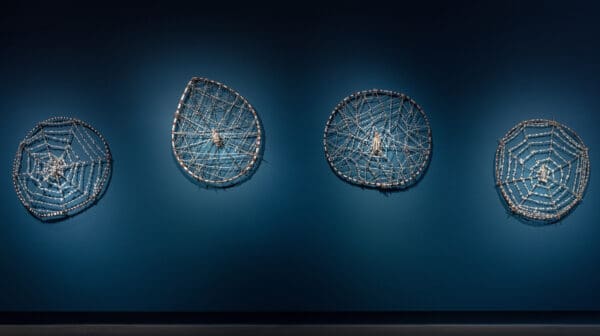
Piercing the veil
A new exhibition at Buxton Contemporary finds a rich complexity in the shadowy terrain between life and death.
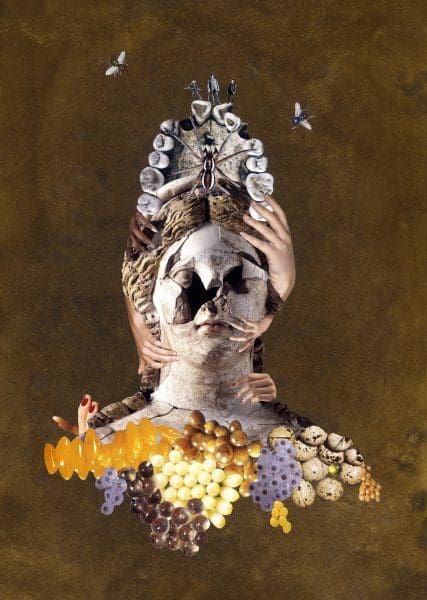
Deborah Kelly, Fertility Cult, collage digitally printed on linen.
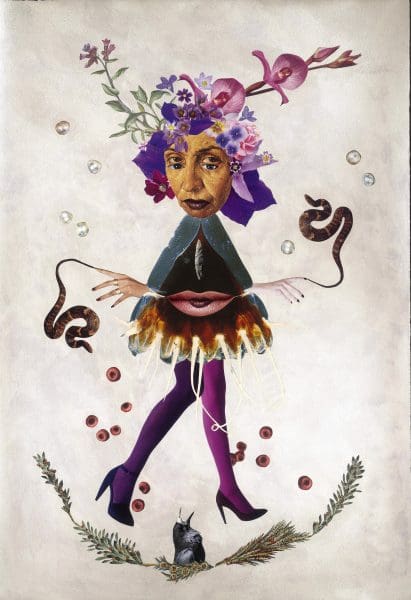
Deborah Kelly, Stone the Crows, collage digitally printed on linen
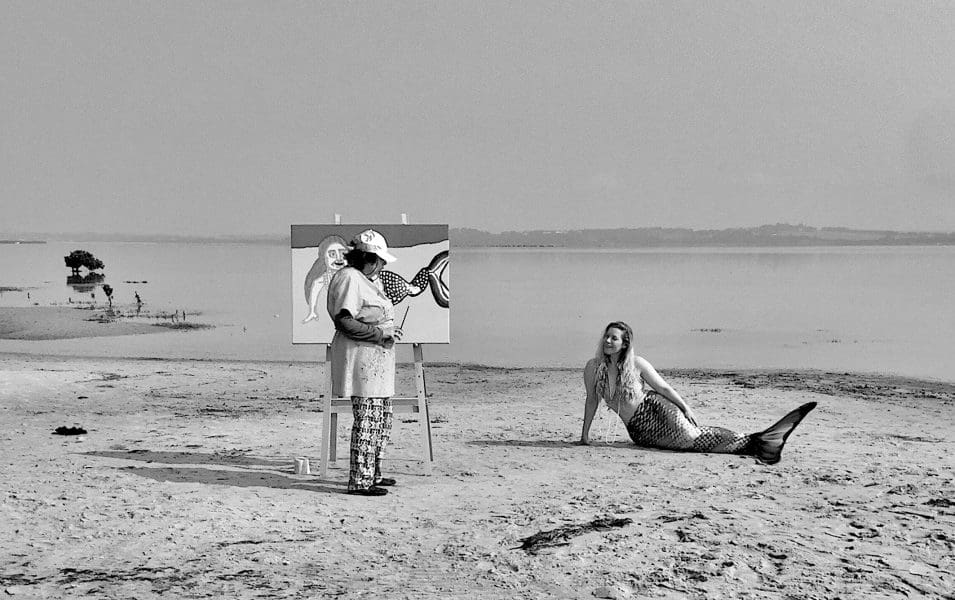
Catherine Bell, The Artist and the Mermaid 2020, silent film.
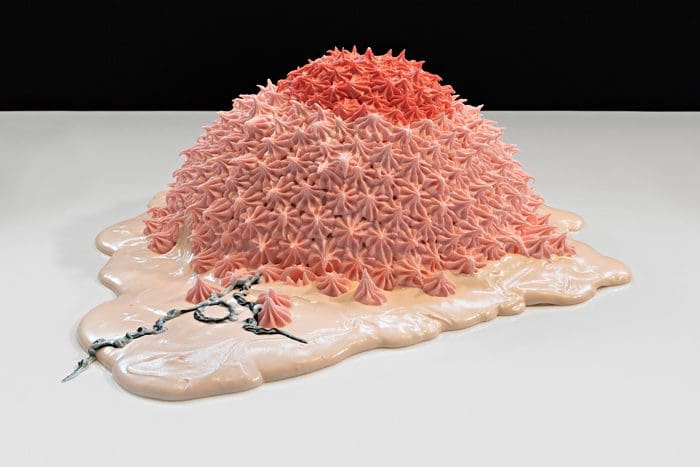
Hotham Street Ladies, Unbridled Abundance: Pink Bits ‘n’ Saggy Tits 2020 (detail), Royal icing, food colour, aluminium mesh, canvas, MDF, dimensions variable
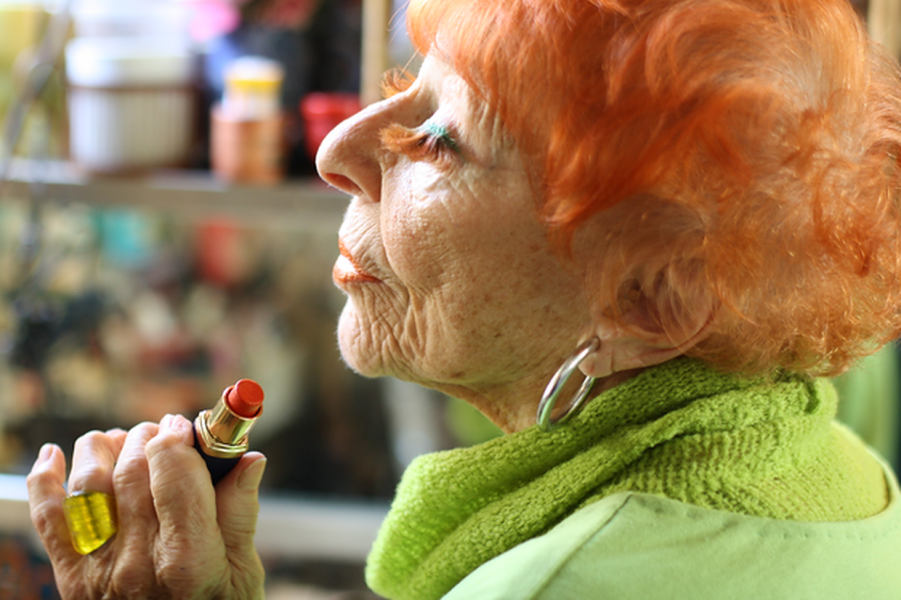
Advanced Style, film screening for Flesh After Fifty.
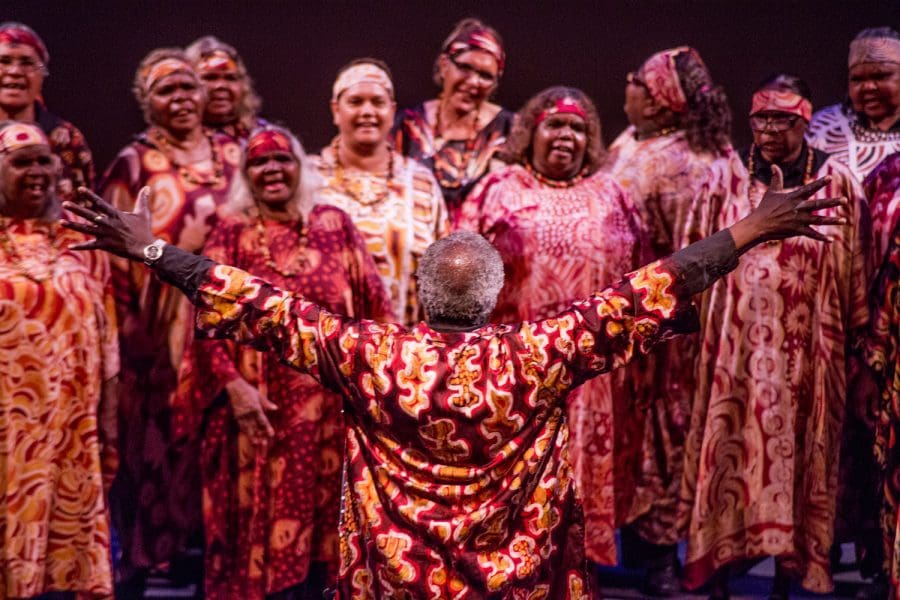
The Song Keepers.
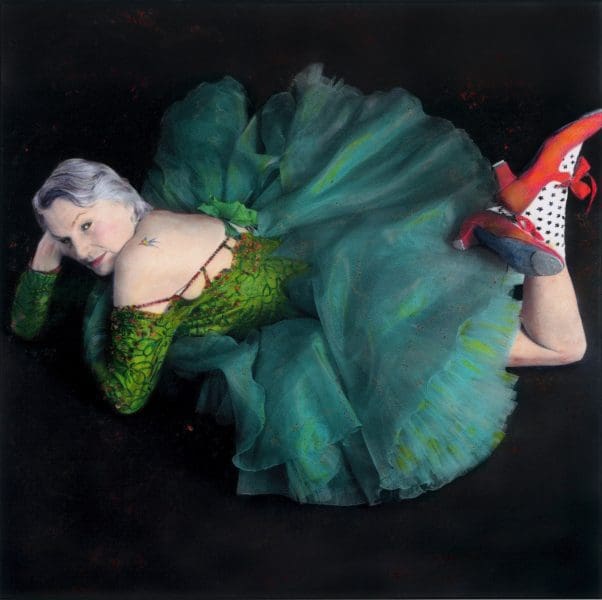
Ruth Maddison’s Lola McHarg.
On Monday 15 March 2021, just a week after International Women’s Day, hundreds of thousands of people took to the streets all around the country, outraged by the deeply engrained sexism in our society, by the allegations of sexual harassment and rape levelled at politicians, and by the Federal Government’s inadequate response. Clearly the fight for women’s rights is yet to be won. On 18 March the World Health Organisation (WHO) reported to the United Nations that it estimates that one out of every two people worldwide holds ageist attitudes; prejudices that affect both the mental and physical health of billions of people. The WHO report asserts that “ageism is prevalent, ubiquitous and insidious because it goes largely unrecognised and unchallenged.”
In Flesh after Fifty, a group exhibition at the Abbotsford Convent in Melbourne, artists join the fray in both of these ongoing battles; they challenge sexism and ageism head on with humour, sincerity and an unflinching gaze on the ageing female body.
The genesis of Flesh after Fifty was conversations between friends Professor Martha Hickey, director of the Gynaecology Research Centre at Melbourne’s Royal Women’s Hospital, and curator Jane Scott. As Scott explains, “We were both really concerned about the obscene way the media and society are pursuing youth. And it’s to the detriment of older people.” Scott pauses, then adds, “But you know, we really wanted to do this exhibition for younger people as well as for older people. Because we wanted to give them something that says, ‘Ageing, it’s not the worst thing that’s going to happen to you.’”
Ageism, eventually, affects everyone. But held to standards of beauty impossible to achieve after a certain birthday, women may suffer sooner and for longer. As Hickey points out in her catalogue essay for Flesh after Fifty, “Our population is ageing and women over fifty will soon be the largest sector of society.” Yet, for such a bulky demographic, these women remain strangely underrepresented in both pop culture and the art world.
“People seem to be kind of offended by the way an older woman’s body looks. And it’s not depicted in art. Or if you see an older woman depicted in historical art, it’s going to be a witch, a crone or a hag,” Scott says. “So we really wanted to tackle the lack of images of older women in the nude in the art world.”
And, in addition to artworks which depict powerful older women – both in and out of their clothes – by Penny Byrne, Maree Clarke, Megan Evans, Janina Green, Sam Jinks, Deborah Kelly, Niki Koutouzis, the Hotham Street Ladies, Ruth Maddison, Patrick Pound, Cathy Staughton and Catherine Bell, Greg Taylor, and Peter Wegner, Flesh after Fifty does just that through a specially commissioned project by Ponch Hawkes titled 500 Strong.
For this series of black and white photographs, 500 women of all shapes and sizes got their kit off. For some the experience was confronting, others found it empowering, but they all felt that it was important. “There was a strong thread among the participants of ‘It is something I ought to be able to do’ and ‘It’s something I should do’ – women putting aside notions of modesty and body hatred for an important cause,” says Hawkes in her essay on the project.
All of the women who posed nude for Hawkes were interviewed, and Scott notes that common themes emerged. “A lot of the women wanted to talk about the history of their bodies: what their bodies have actually done for them, how they have carried them through this life, enabled them to have children, enabled them to explore and be, and think, and work and participate in life. An older body, actually, it says that. It says that I’ve been through all of these things and it’s a kind of badge of honour. Why should we be ashamed of it?” Echoing the sentiments of all the artists in Flesh after Fifty, and of all the women who posed for them, Scott answers her own question, “We shouldn’t.”
Flesh after Fifty
Abbotsford Convent
7 March – 11 April